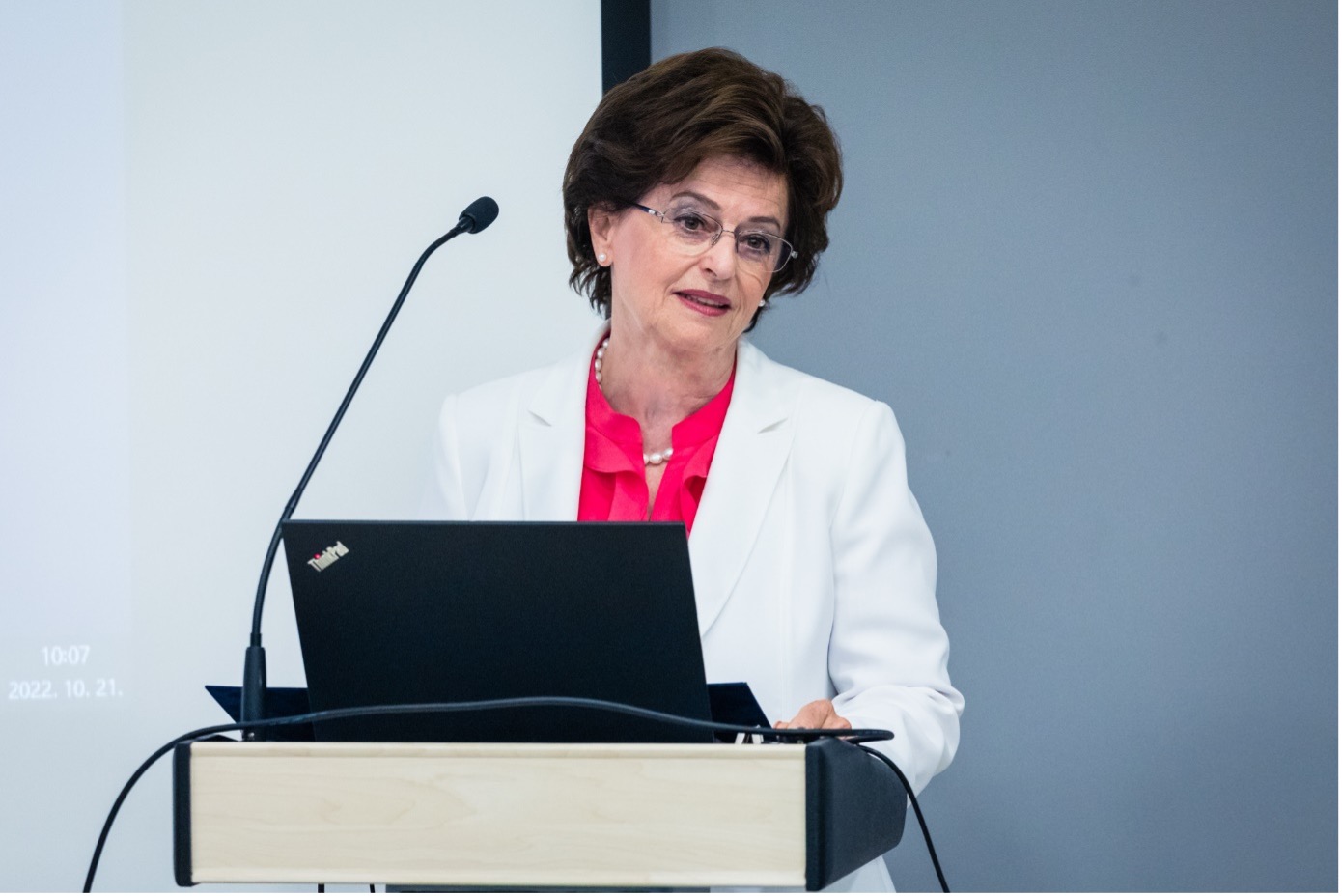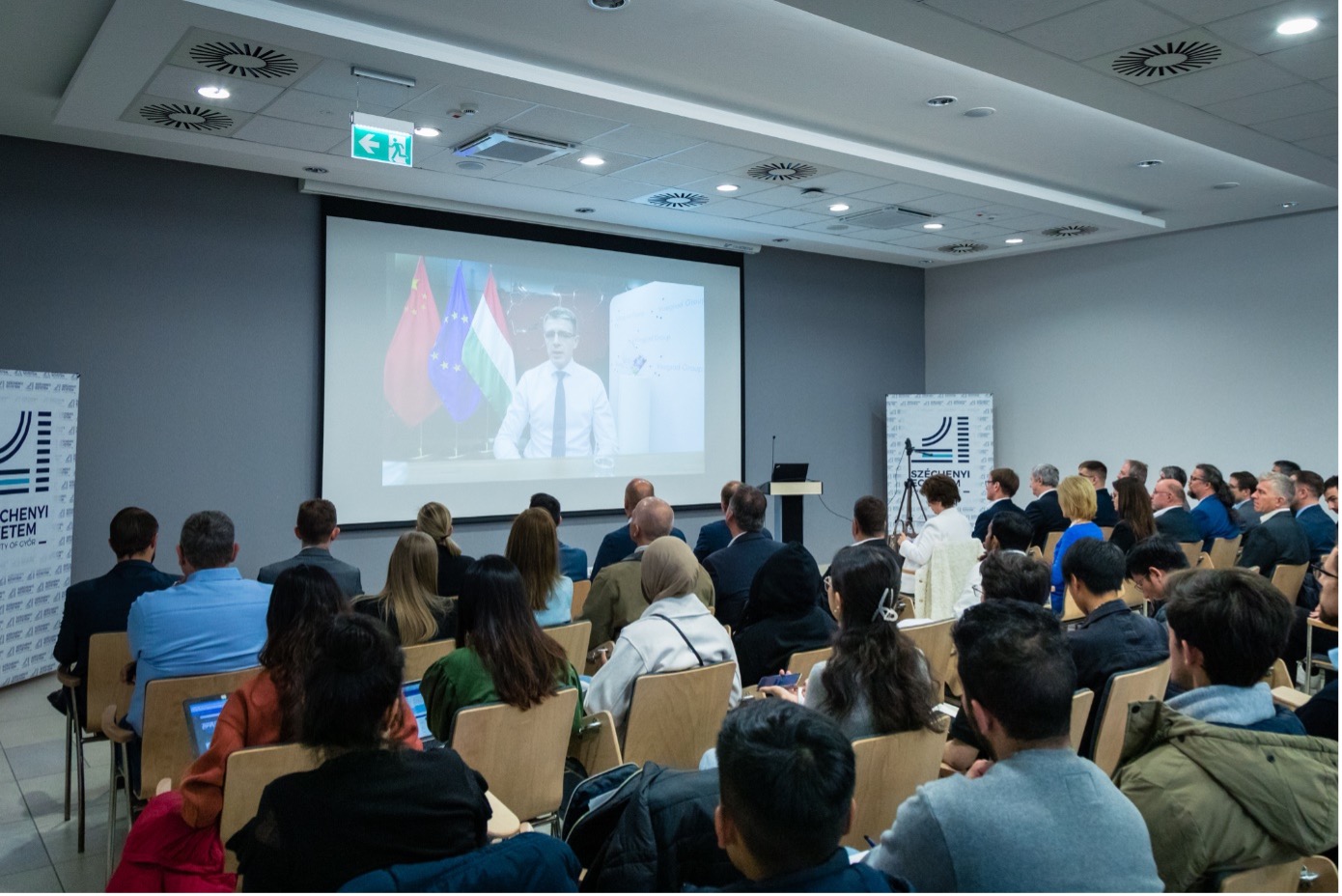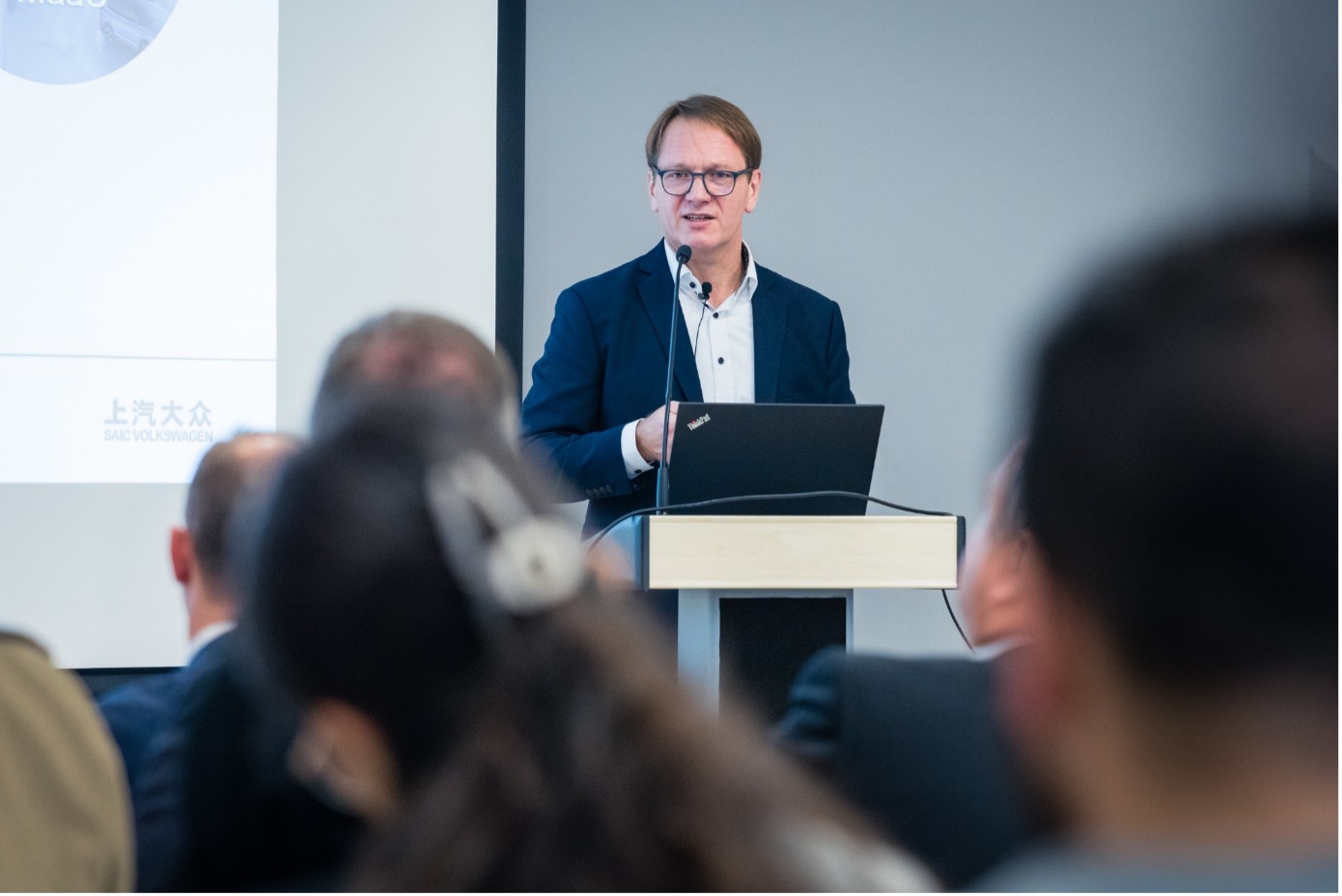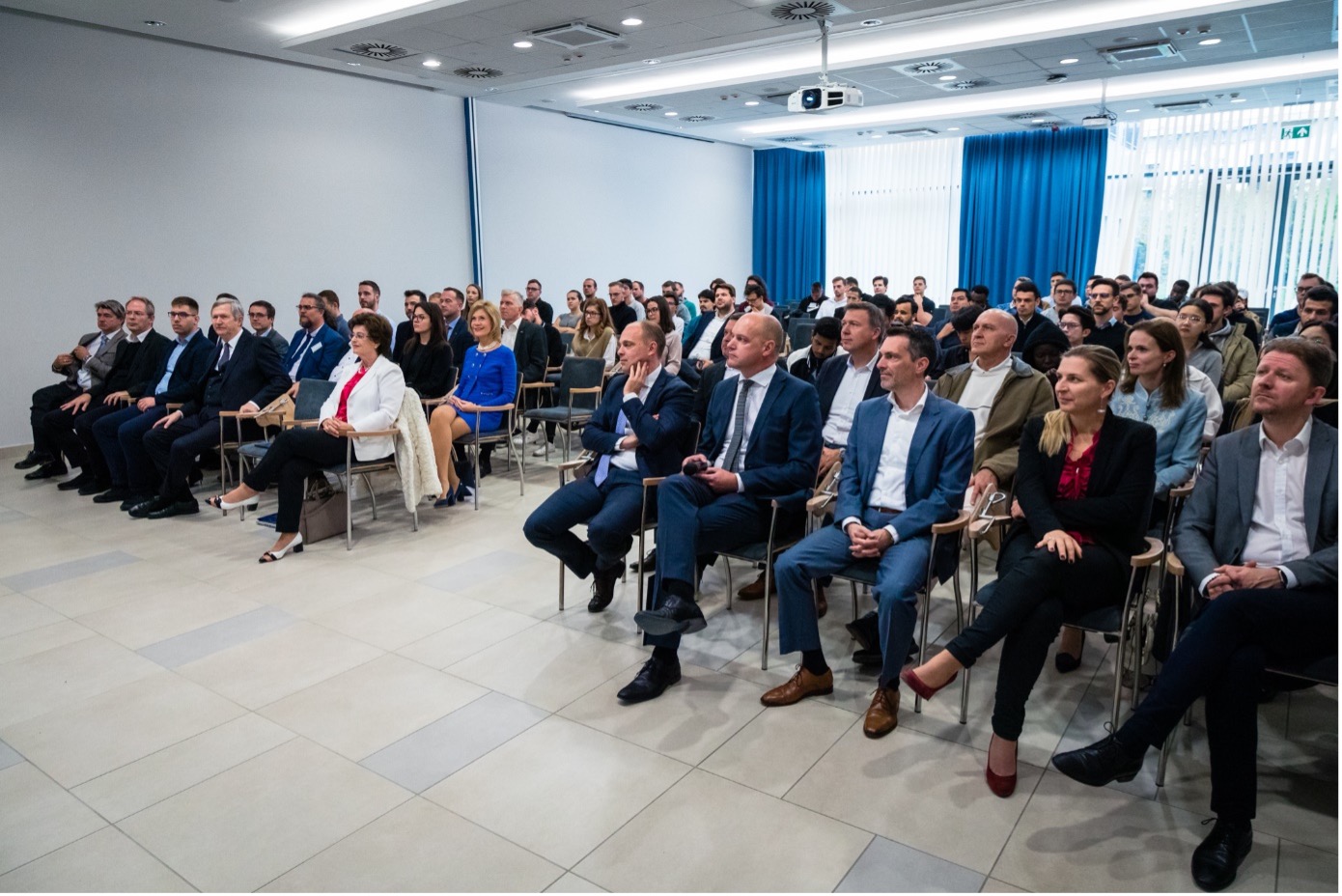Martin Schuster's lecture at Széchenyi University: China sets the trends for autonomous driving
China is also making dynamic progress in the field of autonomous driving, driven by megatrends such as the spread of e-mobility, the development of artificial intelligence and 5G, and the advance of vehicle sharing, according to a presentation by Dr. Martin Schuster, Senior Director of HAD/ADAS Engineering and at SAIC Volkswagen Shanghai and member of the Academic Scientific Council of Széchenyi István University.
The mobility of the future can be largely based on autonomous - in common parlance: self-driving - vehicles and transport systems, in the research of which Széchenyi István University plays a leading role in Hungary. This area is one of the main focuses of the activities of the Institute's Vehicle Industry Research Centre. This is why it was particularly important that Dr. Martin Schuster, Senior Director of HAD/ADAS at SAIC Volkswagen in Shanghai, Honorary Professor of Széchenyi István University and member of the University's Scientific Council, gave a lecture at the university on how China is defining the trends in autonomous driving.
In her welcome speech, Dr. Erzsébet Knáb, Chairperson of the Board of Trustees of the Széchenyi István University Foundation, said that the university is proud to be recognized for its professional work, teaching, scientific research and social responsibility. This is confirmed by the fact that this year the university was ranked among the 800 best universities in the world by the QS higher education rating organisation. She added that Audi Hungaria, which operates the world's largest automotive engine plant, is a premium brand partner of the institution.

Dr. Erzsébet Knáb, Chairperson of the Board of Trustees of the Széchenyi István University Foundation (Photo: Csaba József Májer)
"The close ties with industry are exemplified by the organic partnership between the university and Audi, which has existed since 1993 and resulted in the establishment of the Audi Hungaria Faculty of Automotive Engineering in 2015. The cooperation focuses on education, research, joint financing activities and projects," said Dr. Erzsébet Knáb.
A video message, greeting the participants, was sent by Consul General Szilárd Bolla in Shanghai. He explained that the number of cars in China has almost doubled in the last decade, reaching 302 million by 2021. The number of partially or fully electric vehicles in the Asian country reached 7.8 million last year, and 3.5 million were produced there last year alone. He added that while the Chinese car market also saw growth last year, the second largest market, the US, suffered a 15 per cent decline. The consul general said Hungary is also benefiting from this dynamic development, with several Chinese companies at different levels of the electric vehicle supply chain making significant investments.

Bolla Szilárd sanghaji főkonzul videóüzenetben köszöntötte a jelenlévőket. (Fotó: Májer Csaba József)
Dr. Martin Schuster - who said in his opening remarks that he is very closely connected to Győr, where he spent five wonderful years - gave an interesting lecture of more than an hour to the audience in the conference room of the Management Campus of Széchenyi István University. He explained that autonomous driving was a utopian idea in the 1950s, but is now within reach thanks to technological advances such as increased computing power, sensors, high-resolution maps, 5G data connectivity and artificial intelligence.

Dr. Martin Schuster (Photo: Csaba József Májer)
Dr Martin Schuster, assessing the figures, stressed that Asia is the world's largest car market, with new car sales set to reach 33 million units per year by 2025. Chinese brands are gaining strength and their share could be close to 50 percent in three years. China is also making dynamic progress in the field of autonomous driving, driven by megatrends such as the spread of e-mobility, the development of artificial intelligence and 5G, and the advance of vehicle sharing. Another factor is that Chinese people are particularly keen to be "surprised", to try new and unknown things, and they demand personalised services and experiences. There is also the influence of Generation Z, who value comfort, entertainment and environmental awareness, and no longer regard owning a car as a status symbol. He said that the proliferation of autonomous driving vehicles will reduce labour costs (as drivers will no longer be needed) and the car can become a kind of third home, where people can sit and enjoy a range of activities, whether leisure or otherwise.
Five levels of autonomous driving are distinguished by experts. Level 1 requires the driver to use their legs, Level 2 their hands and Level 3 no longer requires the use of their eyes while sitting in the car. At level 4, you can even sleep while the car is moving, and at level 5, the vehicle is moving without a person in it. Dr Martin Schuster, outlining the Chinese government's vision, said that Level 4 autonomous vehicles are planned to be allowed in a limited area by 2025 and could be in widespread use by 2035, but Chinese industry players expect the pace to be even faster.

The conference room of the Management Campus of Széchenyi István University was full for the lecture (Photo: Csaba József Májer)











